
 Flash News
Flash News
Ceno Klosi with over 800 stolen votes, Balluku finds the reason is the tiredness of the counters
"Fast & Furious" in the former Block, police chase an Audi Q8, 4 cars collide
Car hits two tourists on a motorcycle in Fushe Arrëz, one of them dies
Serious accident in Thumanë, one dead, 3 injured
Durrës Court suspends the director of Pre-University Education from duty
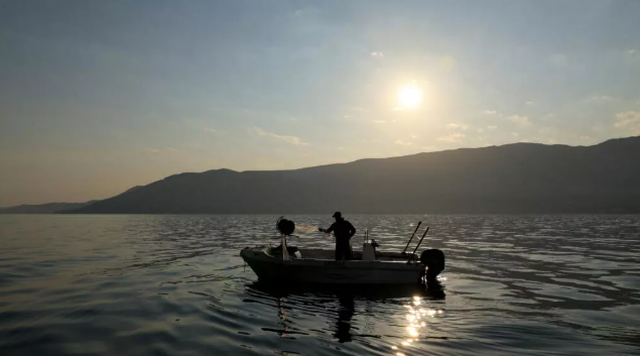
AFP has dedicated a report to the fish kills that are happening due to sea warming. Testimonies from fishermen show how aquatic life is already disappearing, putting fishermen's incomes in difficulty.
Albanians like him have lived from the sea for generations, but Kocaj fears his way of life in the Gulf of Vlora is coming to an end, with warming waters reducing catches every year.
"I lost my battle with the sea. I loved it, but it betrayed me," the father of four told AFP.
As Europe suffers from the first wave of summer heat, sea temperatures are also rising.
By the end of June, the sea off the Albanian coast had already reached 25.5 degrees Celsius (77.9 degrees Fahrenheit) - 1.5 degrees higher than it was at this time last year.
"My luck left me a long time ago ," said Kocaj, despondent at his meager catch. "Look at my almost empty nets ," sighed the 65-year-old, as he prepared to return to port.
A few years ago, he was still able to provide for his family. But now, he said, it's ruined.
"Rising temperatures have been a fatal blow to the fish, and to us too ," he added, trying to hide tears.
Fish are 'almost extinct'
In Vlora, Kocaj estimates that fish populations have declined by 70 percent.
The situation is no better outside the bay, where even the largest fishing vessels in deeper waters are facing difficulties and the forecasts are not optimistic.
Reshat Xhelilaj, head of the fisheries and aquaculture sector in Vlora, told AFP that she expects a hotter summer than 2024, which saw a deep-sea temperature of up to 30.5 C.
Walking to the pier, dragging a small bucket half-filled with fish, Kocaj said that about five years ago he could have returned with up to 10 kilograms of cod a day.
Back then, he and his brother would fish together. And even with much smaller nets, they brought home enough fish to support both their families.
Now he is alone, and despite casting a kilometer of net and spending hours at sea, he is lucky to return with two kilograms of everything.
"They're almost gone," he said of his once abundant catch.
'Devastating'
"Climate change is a major factor in the decline of fish populations," said Nexhip Hysolokaj, a biology researcher at Polis University in Tirana.
Rising temperatures make it difficult for many marine organisms, especially those adapted to cooler waters, to reproduce and grow.
At least a dozen species of fish, usually found in the Indian and Pacific oceans, are now replacing local species that are essential to the food chain, such as the endangered sardine, he said.
The proof lies in the capture of Kocaj, a highly venomous lionfish, which is common in the Caribbean.
"Luckily for him and me, he ended up in my nets," said the fisherman.
Spiny fish is edible if cleaned and prepared properly, and campaigns are underway to help fishermen turn this tropical invader into a profitable alternative.
"Climate change has had devastating effects ," warned Captain Baci Dyrmishi, head of the Gulf's marine fishing association. "Temperatures are exceeding predictions and the waters are overheating."
Baci said that, as the fish catch decreases, the number of those living in the sea is also decreasing and many are leaving the idyllic coastal town to make a living elsewhere.
At Radhima's pier, once home to over a dozen ships, only three or four now anchor.
Latest news





Lufta në Gaza/ Pse Netanyahu do vetëm një armëpushim 60-ditor, jo të përhershëm?
2025-07-02 21:56:08
US suspends some military aid to Ukraine
2025-07-02 21:40:55



Methadone shortage, users return to heroin: We steal to buy it
2025-07-02 20:57:35
Government enters oil market, Rama: New price for consumers
2025-07-02 20:43:30
WHO calls for 50% price hike for tobacco, alcohol and sugary drinks
2025-07-02 20:41:53







Israel agrees to 60-day ceasefire in Gaza, but many unanswered questions remain
2025-07-02 18:35:27
The weather in Germany is going "crazy", temperatures reach 40°C
2025-07-02 18:22:21

"Fast & Furious" in the former Block, police chase an Audi Q8, 4 cars collide
2025-07-02 17:59:25
"Birth on a tourist visa? US Embassy warns Albanians: This is prohibited!"
2025-07-02 17:48:16


BIRN: Fier recount reveals vote trafficking within open political party lists
2025-07-02 16:57:19

CEO and former director of 'Bankers Petroleum' arrested in Fier
2025-07-02 16:40:42
Car hits two tourists on a motorcycle in Fushe Arrëz, one of them dies
2025-07-02 16:33:23


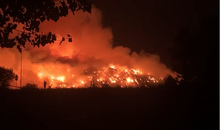
Fire at the Elbasan Incinerator Landfill, Prosecution Launches Investigations
2025-07-02 15:34:54
What you need to know if you travel to a country with active volcanoes
2025-07-02 15:33:03



EU proposes 90% reduction in greenhouse gases by 2040
2025-07-02 14:50:23
Europe is burning from the heat / Italy and France are on maximum alert
2025-07-02 14:36:52

Moscow's contradictory statements: Is the friendship with Vučić breaking down?
2025-07-02 14:21:05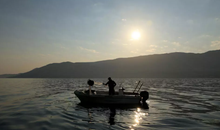
'I lost my battle': Sea warming is killing fishing in Albania
2025-07-02 14:08:35
Sekretet kimike që ndihmojnë në mbajtjen e mjaltit të freskët për kaq gjatë
2025-07-02 14:01:26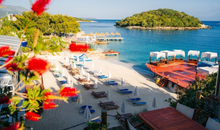
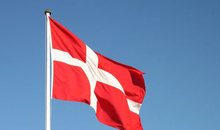
Denmark makes historic decision to make military service mandatory for women
2025-07-02 13:44:33
The appeal of the GJKKO leaves former judge Pajtime Fetahu in prison
2025-07-02 13:30:20
Productivity losses could reduce GDP by 1.3% as a result of extreme heat
2025-07-02 13:21:04
He abused his minor daughter, Zamir Meta is left in prison
2025-07-02 13:04:04

Waste burning in Elbasan, Alizoti: They are poisoning people and stealing money
2025-07-02 12:48:39
Civil disobedience continues in Serbia, dozens of people detained
2025-07-02 12:40:32
Rama's government was born under the sign of garbage and will end like this
2025-07-02 12:28:09
Water prices increase in the municipalities of the Elbasan region
2025-07-02 12:13:38
Civil disobedience continues in Serbia, what is happening in Belgrade?
2025-07-02 12:07:44
Serious accident in Thumanë, one dead, 3 injured
2025-07-02 11:54:42
Durrës Court suspends the director of Pre-University Education from duty
2025-07-02 11:49:27
Plenary session on Thursday, what is expected to be discussed
2025-07-02 11:36:43
Europe is burning from heat waves/ What is the 'thermal dome' phenomenon?
2025-07-02 11:26:25
Wanted by Italy for murder, 45-year-old arrested in Vlora
2025-07-02 11:19:31
Fire situation, 28 fires reported in 24 hours, 2 still active
2025-07-02 11:13:20
"Buka" file, preliminary hearing for Ahmetaj postponed to July 17
2025-07-02 11:03:30


Baçi: Belinda Balluku and Ceno Klosi, the most dangerous "gangs" in Fier
2025-07-02 10:32:09
Zamir Meta, suspected of sexually abusing his daughter, arrives in court
2025-07-02 10:21:33

Trump: Israel has agreed to a 60-day ceasefire in Gaza
2025-07-02 10:01:55
Fire continues at Elbasan landfill
2025-07-02 09:51:13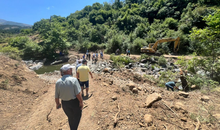

Dates to note during July, important events will occur
2025-07-02 09:31:45
The hearing for Jorgo Goro's claim is postponed
2025-07-02 09:24:19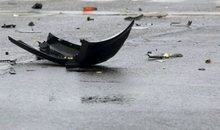

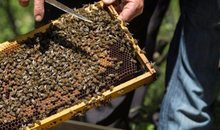

Foreign exchange, the rate at which foreign currencies are sold and bought
2025-07-02 08:42:31

52% of pensioners did not receive full pension in 2024
2025-07-02 08:27:18
Horoscope, what do the stars have in store for you today?
2025-07-02 08:13:36
Hot weather, Wednesday brings high temperatures
2025-07-02 07:59:16
Morning Post/ In 2 lines: What mattered yesterday in Albania
2025-07-02 07:46:15
Heatwave sweeps across Europe, Spain and England record hottest June ever
2025-07-01 22:57:41






Golem and Qerret without water at the peak of the tourist season
2025-07-01 21:09:32

Euractiv: Italy-Albania migrant deal faces biggest legal challenge yet
2025-07-01 20:53:38
BIRN: Brataj and Fevziu victims of a 'deepfake' on Facebook
2025-07-01 20:44:00

Vlora by-pass, work delays and cost increases
2025-07-01 20:24:29



Milan are expected to give up on the transfer of Granit Xhaka
2025-07-01 19:41:25

